Welcome back to our continuing coverage of HBO’s new television series, The Last of Us, starring Pedro Pascal and Bella Ramsey.
Seven episodes down, this penultimate episode stumbles a bit near the finish line with confusing characterization of the story’s worst villain and some eye-roll-worthy “deep” monologuing. It was still a good episode to watch but, in my astute opinion, one of the weaker ones in the season.
So let’s get to it with a recap of the episode!
SPOILER warning for The Last of Us through episode 8 and content of the game through what is covered in episode 8.
Episode 8: “When We Are In Need” Summary
Okay, I don’t understand this title. Only like two of the titles this season have had any kind of genuine meaning. Whoever is titling these episodes needs to be fired.
Anyway, the episode picks up on a barren snowy landscape over a mostly deserted waterfront town. We’re introduced to a small group of people reading Bible verses together. Their preacher, David, comforts a teenage girl whose father recently died. The people seem to be listening to him and taking comfort in his sermon. It’s sad, but it’s pretty much normal, post-apocalypse generic religious group stuff.
The girl asks when they can bury her father. David says the ground is too solid now, so they’ll have to wait until the spring. All the gamers in the audience simultaneously gasp!
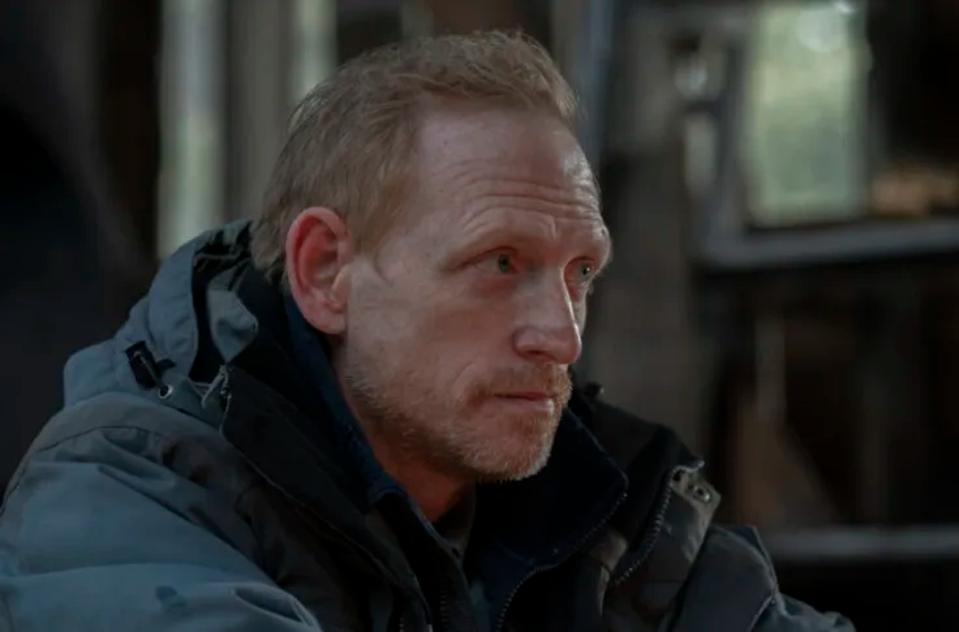
Knowing what comes later in the episode, this opening scene is super odd. David is ultimately revealed to be a cannibalistic pedophile – just as he is in the game. He is the darkest villain Joel and Ellie ever encounter. His villainy is what makes this part of the game interesting, fun, and freakin scary dude. When I first saw the teenage girl in the scene, I thought, oh! He’s gonna do a creepy thing! He’s gonna touch her in some weird creepy way, to foreshadow that he’s a pedophile! But instead that didn’t happen. And so I began the episode in a state of confusion.
Our good boy Troy Baker (the voice of Joel in the games!) talks to David, and they discuss how they’re almost out of food. This does help somewhat foreshadow the cannibalism. But hey, the cannibalism is the least morally confusing thing on our screens this episode tbh.
We then cut to our mains. Joel is still alive (barely). Ellie goes out hunting. We see her use the skills Joel taught her about aiming to successfully hunt a deer. This is a great scene – this is follow-through on characterization from an earlier episode. Ellie has learned a skill from Joel, become more like him, and is now using that skill to help him. This is characterization! Show, don’t tell!
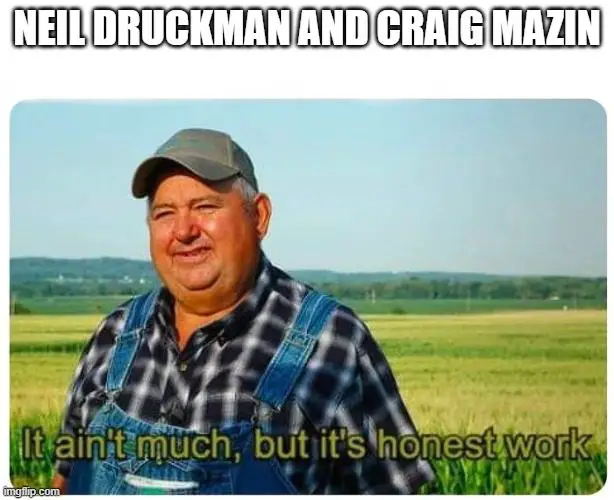
When Ellie tracks down her kill she encounters none other than David and Troy Baker! Now this is a good example of *not* the Serendipity Button. It’s not like each party was randomly wandering through the woods and stumbled upon each other. Both parties were seeking out deer specifically, so their common task brought them together. See how this doesn’t feel cheap or lazy? Because this is decent writing.
Ellie tries to be all badass and use a deep voice to threaten the men (aw). They end up bartering for medicine. Troy Baker leaves to get penicillin (as if that would still be usable 20+ years later) and David stays to hang out with Ellie. At this point, every gamer on the planet watching was saying ZOMBIES ZOMBIES ZOMBIES?? But the script said NO instead we’re gonna humanize the cannibal pedophile guy! He found Jesus everyone!
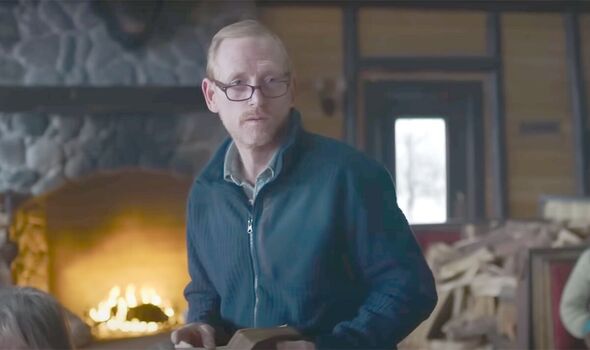
In the video game, there is an extended zombie action sequence at this point where David and Ellie work together to fight off a horde until Troy Baker comes back. It is easily one of the coolest and most fun sequences of the game. And it is essential to the trick of David here: David is immediately trying to groom Ellie. Trading with her, talking to her, and protecting her from the zombies are all ways he tries to gain her trust. And it works on the player, too. David is an NPC who’s helping you live. If he gets attacked, you have to save him, or you lose. He seems like a good NPC for the zombie sequence. This makes the turn later all the more impactful and frightening. Indeed, I would argue that David is the one time the theme “Who are the real monsters?” comes into full effect in The Last of Us Part 1.
I’ll just say it here – this episode was only 50 minutes long. They could have easily had a zombie action sequence that was 5-7 minutes, or even less, to build that characterization. They have the budget, they have the time, and they have the story already from the game. Skipping that part hurt the episode and hurt the narrative. Think about the last big action sequence – when Joel was in the crow’s nest and Ellie was on the ground in the horde in episode 5. That sequence did so much to characterize their relationship. It showed us its development. The same could have happened here, and paralleled Joel, again making the later reveal all the more traumatic.
But alas, instead the script gave us a humanizing background for David. This waste of page space I do not understand. He was a teacher (gross), and after the apocalypse he found God, and now people follow him though he didn’t really mean for that to happen. Why am I getting these details told to me, but nothing to show a level of trust forming between Ellie and him?
David also just wasn’t creepy enough. As a gamer, I knew what was coming. But for the uninitiated, there was nothing in the script to indicate where we were going until more than halfway through the episode. The actor Scott Shepherd did as best a job he could. But you can only do so much with a script that refuses to foreshadow the darkness we’re going to see.
While sitting with Ellie, David reveals that one of his men – the father of the girl in the beginning – was recently killed by a dangerous man who was traveling with a little girl. Ellie realizes it was Joel, and at the same time Troy Baker is back with his gun on Ellie. David instructs Troy Baker to simply exchange the medicine and let her go. Ellie flees on her horsie.
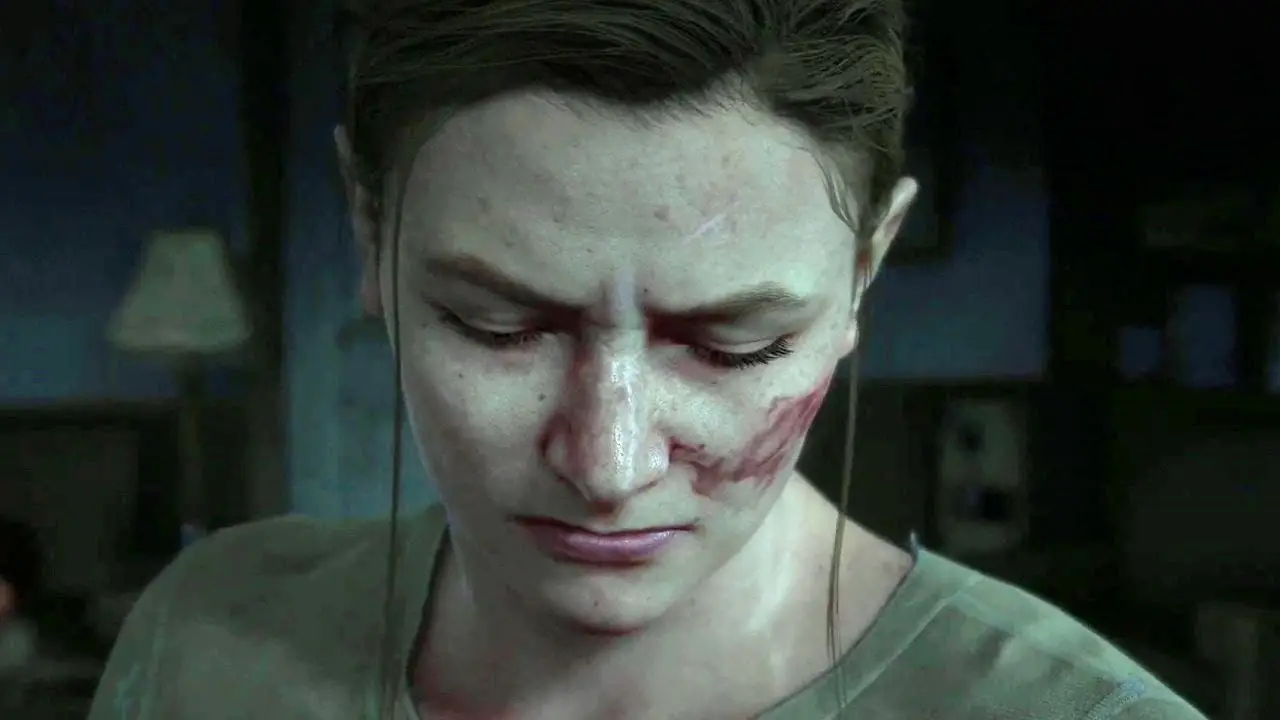
Ellie arrives back and gives Joel a dose of the medicine before cuddling up next to him to sleep (my heart!!). We cut back to David and Troy Baker arriving home with the deer. David reveals that he intends to hunt down Ellie and Joel the next morning, and the daughter of the slain man says he should kill Joel. David then slaps her (??) because that was disrespectful (??) somehow. I get that they’re trying to make him seem super controlling and more sinister, but that sequence didn’t work for me.
What did work well was the long, lingering shots on the “venison” everyone was eating. We knew from prior dialogue they were almost out of food, and we see David arrive back with the deer, so they can’t be eating any venison. With the foreshadowing earlier about not burying the man’s body, plus the faces of the actors who know what they’re eating, the implication is clearly made to the viewer. David smiling as he eats his dinner is all the more sinister in this context.
The next morning, Ellie gives Joel a second dose of the medicine. She goes to stand outside and stare into the middle-distance (another thing she learned from Joel!) when she hears David’s tracking party nearby. Ellie runs to Joel and arms him with a knife, instructing him to kill anyone who comes downstairs. She blocks the basement door with a large cabinet. I wonder if anyone will figure out this cabinet hiding trick within the next three minutes?
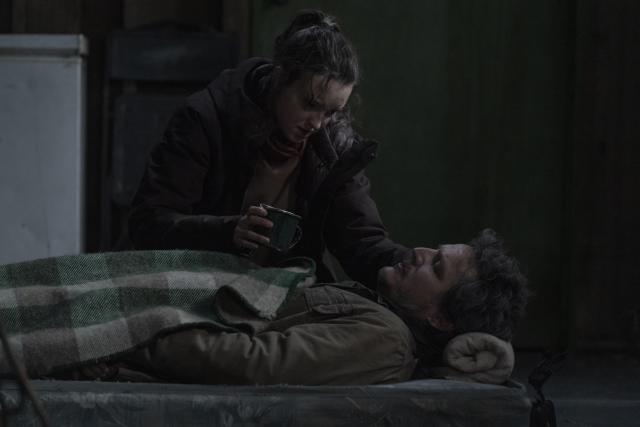
Meanwhile, we hear Troy Baker questioning why David is so intent on saving Ellie. David gives some vague answers. Troy Baker’s face is not convinced. This is a good use of dialogue, because it highlights to the audience that it is in fact weird for a random stranger to be so interested in saving Ellie’s life. We, the audience, could fall for that easily because she is the main character; but it actually is not logical for David’s group to try and save her (she is another mouth to feed). This narrative plays on the audience’s expectation that people around our main character will be part of making our main character succeed in her goals, as David is claiming he wants to do.
Ellie tries to lure the trackers away by fleeing on her horsie, but they immediately shoot the horse and Ellie is captured. Not as thrilling as the gameplay, tbh, which is unfortunate. One of the trackers discovers Joel, and Joel sneak attacks him and presses triangle. Joel ends up capturing two of the trackers and torturing them to find out where Ellie was taken. This is more or less a direct game scene, and it was done well! It’s especially important for viewers to see that Joel is now capable of great violence to protect Ellie, considering what needs to be accomplished in the finale episode.
We go from a really good scene to what is, in my opinion, a largely laughable scene. Now I’d like to say at the outset that this show has a great boon in its actors – Bella Ramsey and Scott Shepherd do a bang-up job here. But lord, there’s only so much that can be done when the lines of dialogue are what they are. Ellie is locked in a cage, and as she looks around the room she sees a human ear on the floor. At the same moment, David returns. Somehow, from seeing an ear, Ellie concludes that David and his group are cannibals. That’s a bit of a leap Ellie, but okay, let’s roll with it.
David freely admits they’re cannibals and clarifies that only a few of his followers know – he’s protecting the others from the knowledge of what they’re doing to survive. David then explains, logically, that otherwise they would starve to death. So cannibalism isn’t cool, obvi, but of like all situations in which to cannibalize, if the only other option is literal death by starvation, it really loses its moral darkness. In game, at least from my experience playing it, it seemed like the whole group knew and actively hunted people to eat, just given the sheer number of bodies you see during that level. Being forced into cannibalization is very different from choosing to eat people.
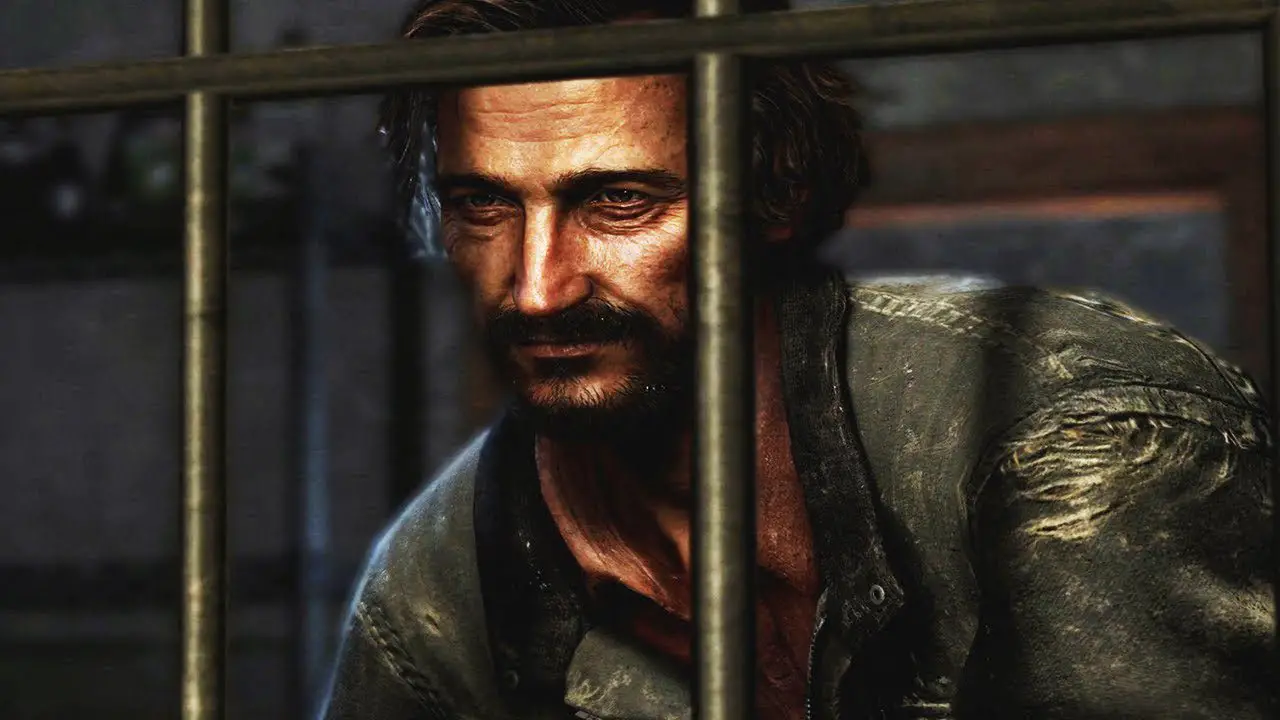
And I mean honestly, can we really say Joel and Ellie wouldn’t have totally eaten someone if they had no other choice? Like c’mon, they would’ve, and they probably still would. It’s the post-apocalypse, this shit is gonna happen. The fact that the script made it plain that they were forced to eat people to survive removed a lot of the darkness in this narrative.
We then get into what I call the “violent heart” narrative. Do me a favor, go back and listen to this dialogue. It’s not good. For a hot second there was some good grooming happening there – David telling Ellie they’re the same, trying to connect with her, is a very pedophile kinda thing to do. And I like that he identifies that Ellie has a violent heart, because she does, we’ve seen it repeatedly on our screens. But it goes precipitously off the rails when David explains that he was shown “the truth” not by God, but by cordyceps!
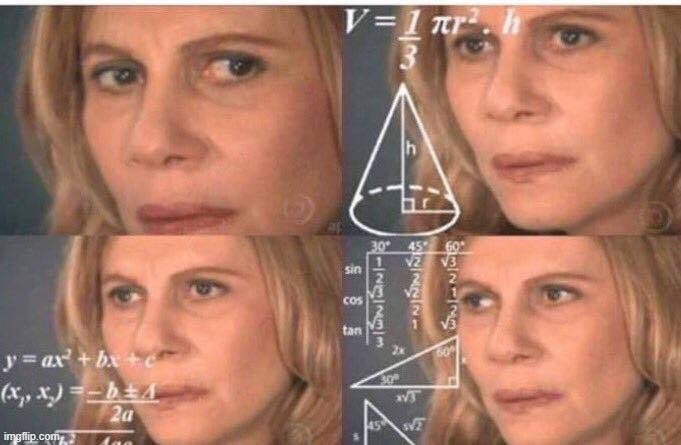
Yes, cordyceps! Cordyceps showed him the truth because it (1) spreads and (2) multiplies, it (3) feeds and (4) protects its children. Cordyceps aren’t evil, cordyceps are love! These are almost direct quotes from this stupid, stupid monologue.
Here’s the thing about dialogue writing. The writer always has to balance the way real people speak against the artsy shit they want to say. It’s different than writing a prose narrative, for instance, where the deep metaphor crap is easier to convey. In a screenplay, you need to weave together both dialogue and images to convey deeper meaning. If ever there is a scene where a character basically looks at the screen and says, “You wanna hear some deep shit?” then you’re doing something wrong.
On top of that, in this case, the description of cordyceps is so overly broad that it can apply to almost anything and therefore loses any meaning. Cats showed him the truth because they spread and multiply, and they feed and protect their children! And oranges too! And butterflies! And literally every living thing in the animal kingdom my dude. By this definition freakin glitter could show him the truth – we all know that shit gets everywhere.
I don’t know exactly who wrote this, I’m willing to back both Craig and Neil, but this reads like someone got high and wrote the first generic thing they could think about cordyceps, and then nobody edited it. Honestly absent that portion, this monologue isn’t the dirt worst. But that portion is so, so stupid.
The rest of the speech is David continuing to try and groom Ellie in a creepy and realistic way. This is the creepiest David has gotten so far in the episode. When he puts his hand on the bars, there is the subtlest music cue in the background of an ominous, eerie tone. At that moment it is clear to the audience what’s going on with David. I still wish it was more foreshadowed, but this moment is excellent. Ellie realizes at the same time as the audience what David wants. She approached the bars and takes his hand, and then breaks his finger.
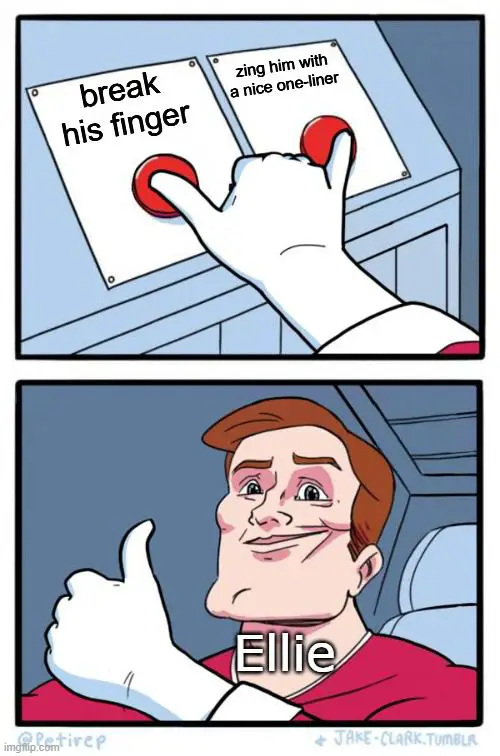
We get a few shots of Joel stumbling around in the snow, discovering Ellie’s backpack, and also discovering some more strung-up bodies (yikes!). David returns with Troy Baker to kill Ellie. During this fight Ellie manages to bite David and then tells them she’s infected, showing them her bite mark. While the two debate whether it’s real, Ellie grabs a cleaver and fatalities Troy Baker. The effect is really, really cool.
We roll into our final boss fight as Ellie flees into a restaurant and David follows close behind with a cleaver. Ellie tries throwing a burning log at him, which starts a fire. While Ellie is hiding, David stalks around the restaurant, spewing the kind of misogynistic hate you see in any classic incel thread on the internet. This dialogue reveals the true character of David, and the actor does a good job at it too!
My complaint at this point is the way it is shot and its length. If you watch this scene, the shots are all pretty tight. They’re close up behind David, or close up to Ellie as she sneaks around in her hiding places. It’s hard to know where David is in comparison to Ellie, so a lot of that danger and tension is lost. In the video game, one of the things that makes this boss fight so frightening is that the setting is large and there are lots of places to hide. Often during the fight you lose track of David and can only hear him in an area. That same tension – knowing a monster is in the room, but not knowing where – can easily be replicated on screen. It wasn’t here, which made it all less tense.
Also, this scene was way too short. From the time David enters the room until when Ellie stabs him is barely two minutes of screen time (46:24-48:33). I know Mazin has something against showing gameplay on screen, but c’mon, this should have been a longer action sequence. Especially with all the potential for sneaking around, hiding, being discovered, running – this should’ve been five or so minutes until she finally manages to stab him.
David does end up catching Ellie, and as he holds her down, he reveals his true intentions with her. This is a terrifying scene. Both actors did an excellent job, and I’m glad it was more explicit than in the games – some people still debate whether that was the implication in the game. Ellie manages to get her hands on the cleaver and kills the shit out of David. She then flees the burning building, almost right into Joel’s arms. She hugs him, he calls her baby girl, and everyone collectively sobs.
Analysis: Close is Only Good Enough in Horseshoes and Romantic Comedies
I’ve declared it before and I’ll declare it again here at the outset: The Last of Us is a good show. However, it’s not a great show, and it regularly leaves me disappointed with its lack of depth.
I think a general shallowness is also a problem of both the games, so this is a problem rooted in the source material. One of the great parts about making an adaptation is the chance to expand your universe and deepen the meaning of your story. This is especially true when going from a video game medium, which has limited time for dialogue, to a television show, which is reliant on plenty of dialogue. And yet even with all the time and money thrown at them by HBO, The Last of Us only manages to come somewhat close to truly significant themes, metaphors, and symbolism.
We have so many examples. Joel’s watch, for instance, had all the potential to be something significant in the show, but it was abandoned. We almost got something with it with Joel’s conversation with Tommy, almost! Kathleen in episode five was almost the perfect plot impediment to Henry’s escape, a physical manifestation of the violence he incurred on her brother; but then she just wasn’t. And in this episode, skipping the sequence with David protecting Ellie from the horde was another missed opportunity for deeper significance to his character, to his relationship to Ellie, and to the viewer’s understanding of pervasive human danger. Indeed, David could have easily paralleled Joel in this episode – making his turn all the more heinous and highlighting further Joel’s moral character. Ugh, I’d beat someone in the head with a golf club for that parallel!
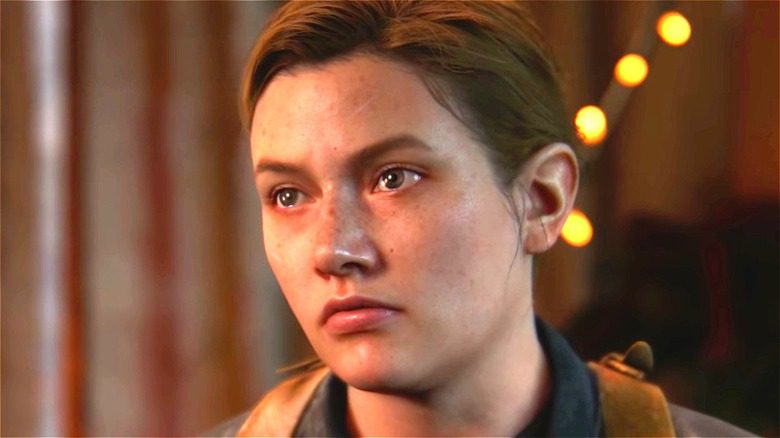
If you feel like I’m beating up on the show, it’s because I am in fact beating up on the show. Don’t worry, Craig and Neil aren’t gonna be crying into their millions of dollars over one lowly interweb opinion. And again, this critique doesn’t mean it’s a bad show or that it’s bad to like it – it just means it’s imperfect and not always satisfying. We should always analyze media like this so that the next thing we make is better. Frankly, this kind of shallow storytelling may work in a game, but it just doesn’t work on television.
I can see that The Last of Us desperately wants to be deep and meaningful. Unfortunately, due to the writing, it lands only as a solidly good zombie apocalypse story. It hasn’t reached that zenith of thematic depth that it wants. And that’s not really good enough anymore.
Analysis: It’s a Marathon, Not a Sprint, Neil
With episode eight in the bag and only one more episode left, we return again to our ongoing primary concern: pacing. Someone please explain to me how we spent 55 minutes in episode three with two characters who died before our main plot came to their house, and two episodes on Bad Guy ™ Kathleen, but only 50 minutes on David??? The winter season is easily the scariest part of the video game, and lauded as one of the best portions (and is my personal favorite part), and we were there for less than an hour? And there were no zombies???
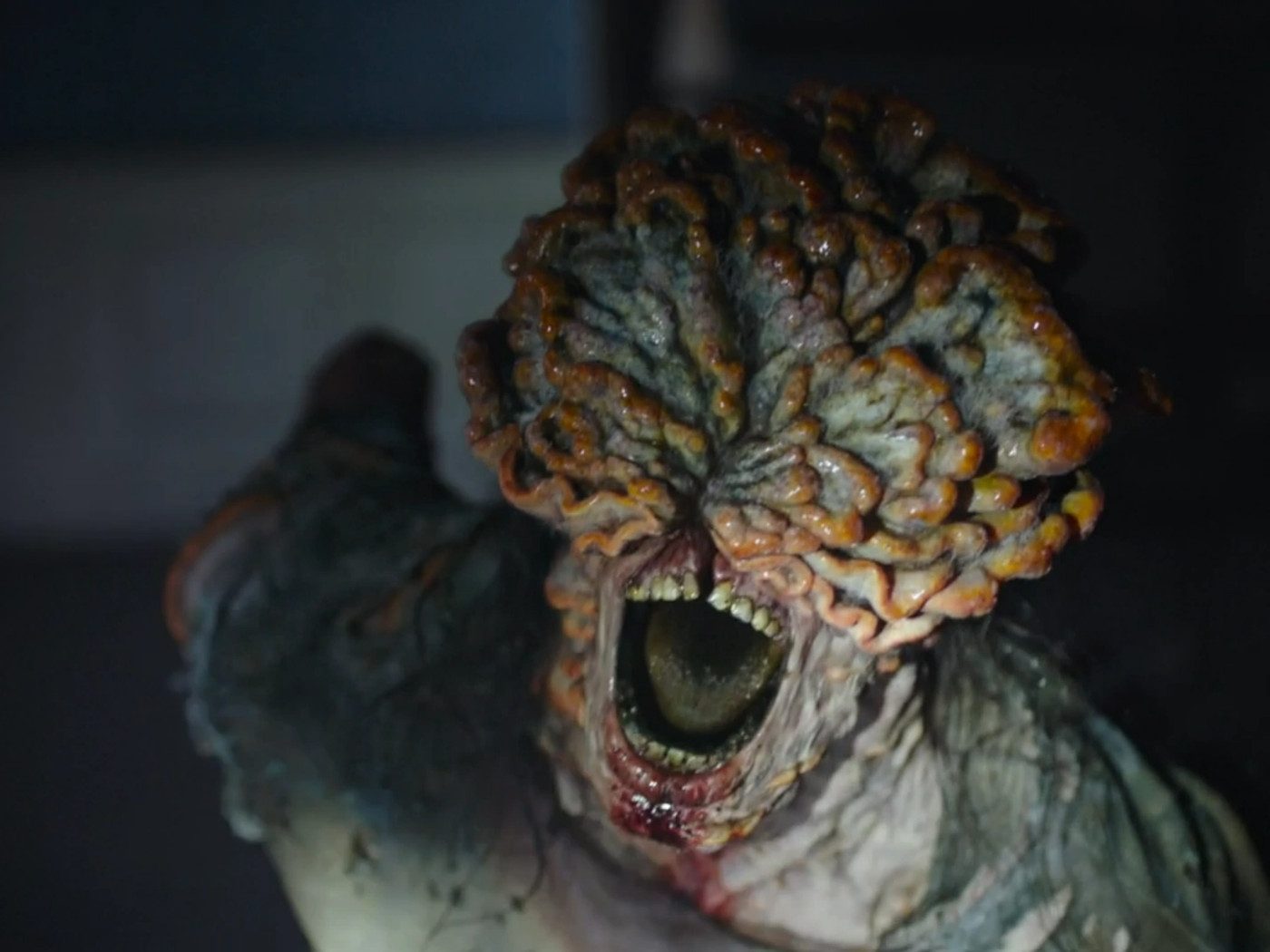
This show feels very strangely weighted. Episode one and three were overlong; episodes two, five, six, and seven were roughly an hour; and episode eight was 50 minutes, while episode four was only 46 minutes. The shortest episode of the season is slated to be THE FINALE. WHAT.
So basically what we have is a season that more or less gets shorter and shorter as it goes on. And as it goes, the individual episode narratives get more and more rushed. We had an hour and half to experience all of Bill’s and Frank’s beautiful life and romance, but now only have less than a full episode for the most impactful plot points to our characters. This is a problem.
This is a problem, and I don’t understand why. The game is paced relatively well. So the source material they’re using isn’t as flawed in this way – my main complaint about pacing in the game is that the game itself is just too short. And maybe part of the problem, as we all sort of predicted, is that the season is too short. I’m sure the finale will be fine enough, but if this pacing so far has taught me anything, it’s that this story really needed two seasons to be told adequately.
A similar pacing issue occurred in HBO’s House of the Dragon with the way in which they divided the season between young and old characters. I’m wondering if this pacing problem, then, has its source in some execs at HBO. I’m less willing to blame this on Neil (but perhaps more on Craig) because the source material doesn’t have this specific issue. We should definitely revisit pacing after the finale, and then wring our hands and worry about season 2 for the next two years.
All of that said, this episode was EXCELLENT for characterizing Ellie. Pretty much everything Ellie said and did developed her character and followed logically from her prior experiences. Bella Ramsey is a true force to be reckoned with. I look forward to seeing her in shows and movies for the rest of her life!
In sum, while The Last of Us is a good show and this was a fine episode, it disappointed me with its lackluster horror, lack of zombos, and failed thematic resonance. Truly the actors saved this episode for me. On my totally arbitrary and subjective rating scale, I give this episode a 6 out of 10.
Images Courtesy of HBO
Have strong thoughts about this piece you need to share? Or maybe there’s something else on your mind you’re wanting to talk about with fellow Fandomentals? Head on over to our Community server to join in the conversation!

